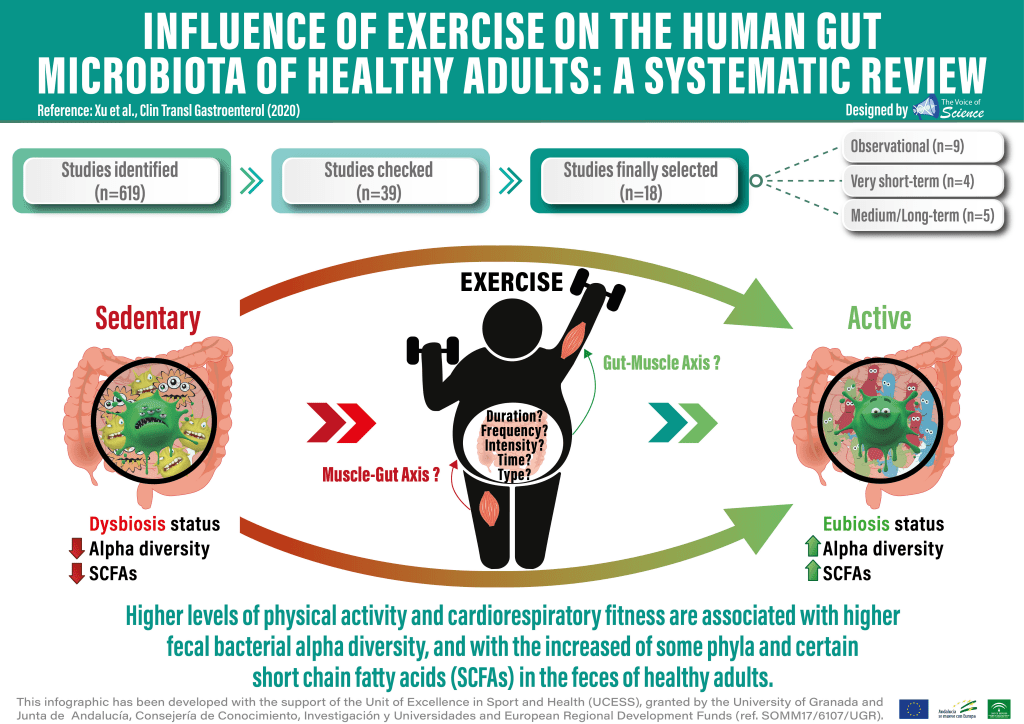Higher levels of physical activity and cardiorespiratory fitness are associated with higher diversity and gut microbiota composition in healthy adults
Researchers from the University of Granada (UGR) have carried out a review to summarize the international scientific literature with the aim of knowing whether physical activity and exercise can improve the composition of the intestinal microbiota
Humans live in symbiosis with different microorganisms. The most representative in gut are Firmicutes (60%–65%), Bacteroidetes (20%–25%), and Proteobacteria (5%–10%). Something important is the term Eubiosis, which means that there is an intestinal microbial balance, associated with good health status. However, a microbial imbalance, known as dysbiosis, is present in various pathologies, such as obesity, diabetes and cardiovascular diseases. In animal models the exercise restores eubiosis, thus improving their health.
The present systematic review included 18 studies: 9 were observational, 4 reported very short-term exercise interventions, and 5 reported medium/long-term exercise interventions, all in healthy adults. Results showed that physical activity and cardiorespiratory fitness seem to be positively associated with diversity and gut microbiota composition, whereas exercise interventions seem to be positively related to gut microbiota composition. However, the heterogeneity of the studies examined must be highlighted.
The authors of this publication, who work at the universities of Granada and Leiden, emphasize the importance of promoting changes on composition gut microbiota through exercise, as part a non-pharmaceutical treatment to improve health.
This paper is signed by the researchers Lourdes Ortiz Alvarez and Huiwen Xu of the University of Granada. With the collaboration of Borja Martinez Tellez of the Leiden University Medical Center.




